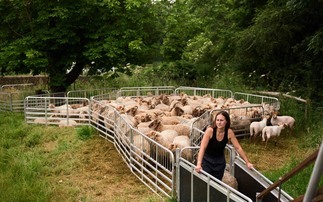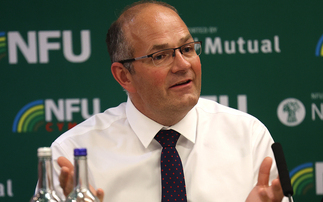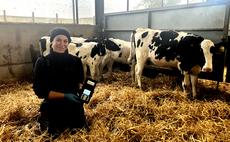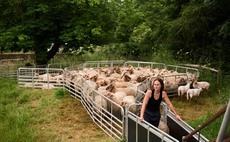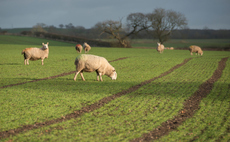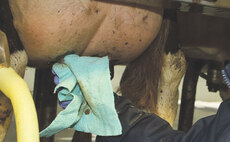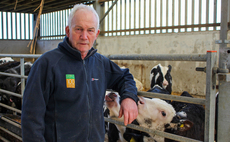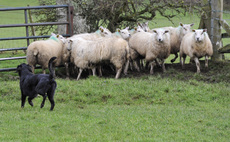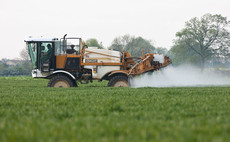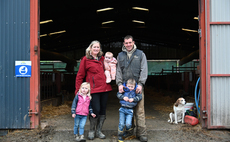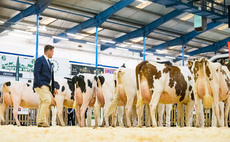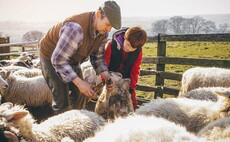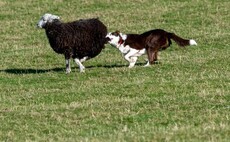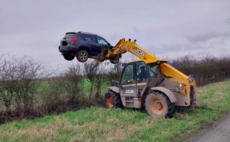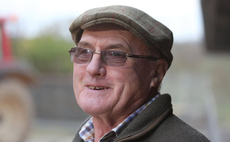
Natalie Bennett, Baroness Bennett of Manor Castle is an Australian-British politician and journalist who served as Leader of the Green Party of England and Wales from 2012 to 2016.
UK farmers are used to having their use of antibiotics and antifungals questioned. Supermarkets and other retailers have demanded that farmers reduce their use of pharmaceuticals, as concern about antimicrobial resistance (AMR), with its threat to the continued availability of modern medicine and the risk of (further) pandemics, has risen in the public mind.
Many will recall how David Cameron, with Dame Sally Davies at his shoulder, lifted it up to public attention a handful of Prime Ministers ago.
Globally too, concern has grown, as has the ability to chart the damage. In 2019, about five million deaths were associated with resistant bacterial infections.
Yet this issue has yet to be turned around, as it should be, and treated as a workplace safety issue. Little attention has been paid to the risk posed to farmers and farm workers, who use these chemicals and spend their working life in close proximity to high concentrations of their residues and bacteria and fungi exposed to high concentrations of the pharmaceuticals.
A recent scientific article identified several UK environments where AMR has been previously documented, including agricultural soil, slurry or soils amended with sewage sludge, which farmers are exposed to regularly.
One study in the US found that spray irrigators exposed to reclaimed water used for irrigation were more likely to be carriers of antibiotic-resistant bacteria (specifically coagulase negative staphylococci, which can cause skin infections).
A study from India found that farmers who washed buffaloes were more likely to be colonised by drug-resistant bacteria (E.coli), than people who did not.
After a period of unfortunate complacency on these issues in the UK Government, but with scientific research fast raising concerns, including how pesticides and other chemicals can also select for AMR, 20m has just been allocated to develop food-borne and environmental AMR surveillance as part of the PATH-SAFE project.
This funding is one step closer to having effective surveillance systems in place for environmental AMR in the UK.
Focus
These are issues on which I am focusing, with the help of two senior interns from the British Society for Antimicrobial Chemotherapy issues which highlight the urgent need for One Health approaches which take in human, animal and environmental health.
That demands too that we acknowledge we have busted through the planetary boundary for novel entities, including pharmaceuticals and pesticides, and need to urgently slash their use.
And an understanding too that, as we learned so tragically with Covid-19, no-one is safe until everyone is safe. The spread of AMR microbes has no geographical boundaries.
I was recently with the All-Party Parliamentary Groups on Antibiotics and Water, Sanitation and Hygiene, hearing about how medical workers in the Global South have to operate without the most basic facilities, like running water. That raises AMR risks enormously as drugs have be used to prevent and treat inevitable infections.
There are also big issues with continued use of antibiotics inappropriately in farming in wealthier nations, most notably the US, where use of antibiotics as growth promotants and the application of the vital antibiotic streptomycin on orange trees as a highly ineffective attempt to stop citrus greening disease, are just two standout examples of astonishingly bad practice.
The UN has appropriately referred to farmers as frontline defenders against the spread of superbugs. This is an approach we need to take in the UK, as well as to work to spread around the world, for our farmers and farm workers, as well as our broader society.










